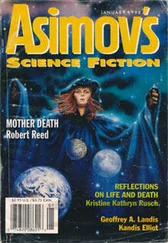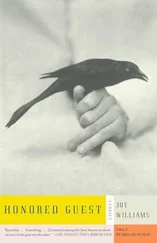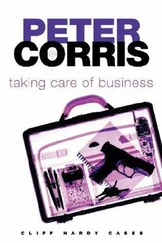Joy Williams - Taking Care
Здесь есть возможность читать онлайн «Joy Williams - Taking Care» весь текст электронной книги совершенно бесплатно (целиком полную версию без сокращений). В некоторых случаях можно слушать аудио, скачать через торрент в формате fb2 и присутствует краткое содержание. Год выпуска: 2010, Издательство: Vintage, Жанр: Современная проза, на английском языке. Описание произведения, (предисловие) а так же отзывы посетителей доступны на портале библиотеки ЛибКат.
- Название:Taking Care
- Автор:
- Издательство:Vintage
- Жанр:
- Год:2010
- ISBN:нет данных
- Рейтинг книги:5 / 5. Голосов: 1
-
Избранное:Добавить в избранное
- Отзывы:
-
Ваша оценка:
- 100
- 1
- 2
- 3
- 4
- 5
Taking Care: краткое содержание, описание и аннотация
Предлагаем к чтению аннотацию, описание, краткое содержание или предисловие (зависит от того, что написал сам автор книги «Taking Care»). Если вы не нашли необходимую информацию о книге — напишите в комментариях, мы постараемся отыскать её.
Taking Care — читать онлайн бесплатно полную книгу (весь текст) целиком
Ниже представлен текст книги, разбитый по страницам. Система сохранения места последней прочитанной страницы, позволяет с удобством читать онлайн бесплатно книгу «Taking Care», без необходимости каждый раз заново искать на чём Вы остановились. Поставьте закладку, и сможете в любой момент перейти на страницу, на которой закончили чтение.
Интервал:
Закладка:
“Sam,” the child called, “why do you have your hand over your heart?”
“That’s my Scotch,” Sam said.
Elizabeth was a nervous young woman. She was nervous because she was not married to Sam. This desire to be married again embarrassed her, but she couldn’t help it. Sam was married to someone else. Sam was always married to someone.
Sam and Elizabeth met as people usually meet. Suddenly, there was a deceptive light in the darkness. A light that reminded the lonely blackly of the darkness. They met at the wedding dinner of the daughter of a mutual friend. Delicious food was served and many peculiar toasts were given. Sam liked Elizabeth’s aura and she liked his too. They danced. Sam had quite a bit to drink. At one point, he thought he saw a red rabbit in the floral centerpiece. It’s true, it was Easter week, but he worried about this. They danced again. Sam danced Elizabeth out of the party and into the parking lot. Sam’s car was nondescript and tidy except for a bag of melting groceries.
Elizabeth loved the way he kissed. He put his hand on her throat. He lay his tongue deep and quiet inside her mouth. He filled her mouth with the decadent Scotch and cigarette flavor of the tragic middle class. On the other hand, when Sam saw Elizabeth’s brightly flowered scanty panties, he thought he’d faint with happiness. He was a sentimentalist.
“I love you,” Elizabeth thought she heard him say.
Sam swore that he heard Elizabeth say, “Life is an eccentric privilege.”
This worried him but not in time.
They began going out together frequently. Elizabeth promised to always take the babysitter home. At first, Elizabeth and Sam attempted to do vile and imaginative things to one another. This was culminated one afternoon when Sam spooned a mound of pineapple-lime Jell-O between Elizabeth’s legs and began to eat. At first, of course, Elizabeth was nervous. Then she stopped being nervous and began watching Sam’s sweating, good-looking shoulders with real apprehension. Simultaneously, they both gave up. This seemed a good sign. The battle is always between the pleasure principle and the reality principle is it not? Imagination is not what it’s cracked up to be. Sam decided to forget the petty, bourgeois rite of eating food out of one another’s orifices for a while. He decided to just love Elizabeth instead.
“Did you know that Charles Dickens wanted to marry Little Red Riding Hood?”
“What!” Sam exclaimed, appalled.
“Well, as a child he wanted to marry her,” Elizabeth said.
“Oh,” Sam said, curiously relieved.
Elizabeth had a house and her little girl. Sam had a house and a car and a Noank sloop. The houses were thirteen hundred miles apart. They spent the winter in Elizabeth’s house in the South and they drove up to Sam’s house for the summer. The trip took two and one-half days. They had done it twice now. It seemed about the same each time. They argued on the Baltimore Beltway. They bought peaches and cigarettes and fireworks and a ham. The child would often sit on the floor in the front seat and talk into the air-conditioning vent.
“Emergency,” she’d say. “Come in please.”

On the most recent trip, Sam had called his lawyer from a Hot Shoppe on the New Jersey Turnpike. The lawyer told him that Sam’s divorce had become final that morning. This had been Sam’s third marriage. He and Annie had seemed very compatible. They tended to each other realistically, with affection and common sense. Then Annie decided to go back to school. She became interested in animal behaviorism. Books accumulated. She was never at home. She was always on field trips, in thickets or on beaches, or visiting some ornithologist in Barnstable. She began keeping voluminous notebooks. Sam came across the most alarming things written in her hand.
Mantids are cannibalistic and males often literally lose their heads to the females. The result, as far as successful mating is concerned, is beneficial, since the suboesophageal ganglion is frequently removed and with it any inhibition on the copulatory center; the activities of male abdomen are carried out with more vigor than when the body was intact.
“Annie, Annie,” Sam had pleaded. “Let’s have some people over for drinks. Let’s prune the apple tree. Let’s bake the orange cake you always made for my birthday.”
“I have never made an orange cake in my life,” Annie said.
“Annie,” Sam said, “don’t they have courses in seventeenth-century romantic verse or something?”
“You drink too much,” Annie said. “You get quarrelsome every night at nine. Your behavior patterns are severely limited.”
Sam clutched his head with his hands.
“Plus you are reducing my ability to respond to meaningful occurrences, Sam.”
Sam poured himself another Scotch. He lit a cigarette. He applied a mustache with a piece of picnic charcoal.
“I am Captain Blood,” he said. “I want to kiss you.”
“When Errol Flynn died, he had the body of a man of ninety,” Annie said. “His brain was unrealistic from alcohol.”
She had already packed the toast rack and the pewter and rolled up the Oriental rug.
“I am just taking this one Wanda Landowska recording,” she said. “That’s all I’m taking in the way of records.”
Sam, with his charcoal mustache, sat very straight at his end of the table.
“The variations in our life have ceased to be significant,” Annie said.
Sam’s house was on a hill overlooking a cove. The cove was turning into a saltwater marsh. Sam liked marshes but he thought he had bought property on a deep-water cove where he could take his boat in and out. He wished that he were not involved in the process of his cove turning into a marsh. When he had first bought the place, he was so excited about everything that he had a big dinner party at which he served soupe de poisson using only the fish he had caught himself from the cove. He could not, it seems, keep himself from doing this each year. Each year, the soupe de poisson did not seem as nice as it had the year before. About a year before Annie left him, she suggested that they should probably stop having that particular dinner party. Sam felt flimflammed.
When Sam returned to the table in the Hot Shoppe on the New Jersey Turnpike after learning about his divorce, Elizabeth didn’t look at him.
“I have been practicing different expressions, none of which seem appropriate,” Elizabeth said.
“Well,” Sam said.
“I might as well be honest,” Elizabeth said.
Sam bit into his egg. He did not feel lean and young and unencumbered.
“In the following sentence, the same word is used in each of the missing spaces, but pronounced differently.” Elizabeth’s head was bowed. She was reading off the place mat. “Don’t look at yours now, Sam,” she said, “the answer’s on it.” She slid his place mat off the table, spilling coffee on his cuff in the process. “A prominent _____and man came into a restaurant at the height of the rush hour. The waitress was_____to serve him immediately as she had_____.”
Sam looked at her. She smiled. He looked at the child. The child’s eyes were closed and she was moving her thumb around in her mouth as though she were making butter there. Sam paid the bill. The child went to the bathroom. An hour later, just before the Tappan Zee Bridge, Sam said, “Notable.”
“What?” Elizabeth said.
“Notable. That’s the word that belongs in all three spaces.”
“You looked,” Elizabeth said.
“Goddamn it,” Sam yelled. “I did not look!”
“I knew this would happen,” Elizabeth said. “I knew it was going to be like this.”
Читать дальшеИнтервал:
Закладка:
Похожие книги на «Taking Care»
Представляем Вашему вниманию похожие книги на «Taking Care» списком для выбора. Мы отобрали схожую по названию и смыслу литературу в надежде предоставить читателям больше вариантов отыскать новые, интересные, ещё непрочитанные произведения.
Обсуждение, отзывы о книге «Taking Care» и просто собственные мнения читателей. Оставьте ваши комментарии, напишите, что Вы думаете о произведении, его смысле или главных героях. Укажите что конкретно понравилось, а что нет, и почему Вы так считаете.












